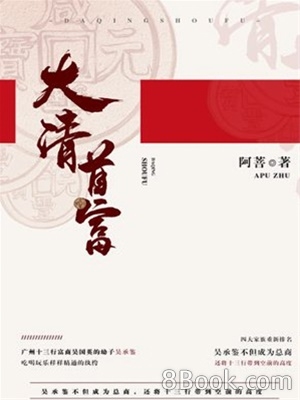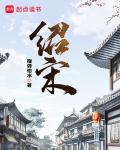Chapter 573 Heavy Damage
Looking at the pale sky and the exhausted soldiers under his command, Guo Wei sighed.
"Have all the troops rest on the spot and cook immediately. Eat in an hour, then go and join General Xie Jing!"
An hour passed quickly, and the soldiers who were still half asleep were awakened by their respective officers. Then the kitchen staff brought food for the soldiers to eat.
After all the soldiers had been packed up, Guo Wei and his men left behind two thousand soldiers to guard the baggage and food in the enemy camp, and to escort the prisoners.
There are generally several ways to deal with prisoners produced in this era .
Some would be killed directly as sacrifices! In this era, superstition about military might required the sacrifice of men's blood. Killing the enemy as a sacrifice would allow the soldiers under one's command to be blessed by the gods.
Some simply massacred the enemy, a feat Bai Qi was an expert at. The reason for the massacres was, firstly, that these soldiers were difficult to subjugate, so it was better to kill them all, which would greatly intimidate the enemy. Secondly, it was to ensure the supply of food and fodder. In ancient times, transporting and supplying food and fodder was extremely difficult. Leaving tens of thousands of captives to feed the people and horses was a tremendous pressure.
However, generally speaking, most generals believed that killing surrendered soldiers was a bad omen, so killing prisoners was still a minority after all.
The most common method is to recruit them. One is to break up the elite troops and incorporate them into one's own army to replenish the losses. The other is to incorporate them into the auxiliary army to transport food and fodder and serve as strong men.
The other option is to hand it over directly to the local government to repair buildings, fortifications, etc. It is free for the able-bodied men, and they don’t even feel sorry if they die. This is naturally useful.
Moreover, no matter which dynasty, population, especially men and women in their prime, is an important indicator of prosperity. Therefore, even after some wars, people were abducted.
This is why, once you can't win, you will surrender. After all, although life may not be very good in the future, you can basically survive under normal circumstances.
As for whether the surrendered soldiers would make camp calls or something like that, it does happen, but it is also rare.
First, these surrendered soldiers were scattered across the country, making it difficult to gather them together. Even if a few of them wanted to cause trouble, they would be quickly suppressed. Second, a good death is worse than a miserable life. Who would want to die if they could survive?
Furthermore, soldiers of this era didn't have a strong sense of national identity. Serving as a soldier, earning a salary, was like a specialized profession—it didn't matter who they served. It was unrealistic to expect these ordinary soldiers to be deeply loyal to their country or to harbor lofty ideals. Perhaps their greatest aspirations were simply to receive adequate pay and eat a little more meat.
This is a limitation of the times and cannot be changed by human power.
Therefore, as long as the generals, captains and the like in the enemy army are detained or killed directly, except for a small number of personal guards and death squads who will die in battle, the rest of the troops will basically choose to surrender, and the victorious party can naturally rest assured to subdue these troops under its own command.
Just like during the Three Kingdoms period, which faction's troops were not supplemented by foreign forces? This is the same principle.
However, time was of the essence, as these rebel soldiers had just returned and there was no time to recruit them. Therefore, Guo Wei could only temporarily detain them and consider further action after the war was completely over.
After Guo Wei and his companions settled their troops, they led their troops back and headed towards the mountain pass ahead.
However, they had just traveled halfway when they encountered Xie Jing leading his troops.
"General, what's the situation ahead?" Guo Wei asked anxiously.
Xie Jing laughed heartily. "Don't worry, the Marshal has arrived. We've been fighting for half the night, and only just stopped now. Almost all the soldiers in one camp have been annihilated, and the rest have been captured. Another camp has suffered several thousand casualties and is now surrounded."
Jia Cong also sent people to harass another enemy camp several times, but the enemy was aware of the current situation and simply kept their troops in place, waiting for Jia Cong's troops to arrive before they launched a counterattack.
Moreover, as long as Jia Cong's troops refused to retreat, they would return to the camp without giving Jia Cong any chance. The troops sent by Xie Jing also took the opportunity to launch two surprise attacks, but the enemy's defense was tight, and after losing hundreds of soldiers, they were defeated.
Xie Jing was worried about the situation at Guo Wei's place, so he asked Jia Cong for permission to lead troops to support him.
"How's the situation over there?"
"General, look who this is?" Guo Wei pointed at Tian Hai and laughed. "I led my troops to attack the camp, and happened to encounter brother Tian Hai leading his troops to raid the rear of the enemy camp. The two of us worked together, and now we have won a great victory."
"Okay, okay!" Xie Jing said okay repeatedly, then stepped forward to greet Tian Hai.
"Now that the battle is over, let's report to the commander-in-chief and see how he will deploy his troops next."
Several soldiers joined together and headed towards the valley again.
At the mountain pass ahead, the army had already set up camp. Except for a part of the soldiers who were still watching the enemy camp, the rest of the soldiers were all resting.
After all, they had been fighting all night yesterday, and both the officers and soldiers were extremely tired.
The fire on the other side of the barren mountain has been put out. Fortunately, this place is close to Shuangxi and has convenient water access. Otherwise, if the fire spreads, who knows how many days it will burn.
Even so, this barren mountain that was once densely wooded has now become mostly bare.
Jia Cong deployed the troops to rest and regroup, and around noon, Xie Jing and his men also returned with their troops. Hearing that the battle on the other side was also going well, Jia Cong finally felt relieved.
Afterwards, they were also allowed to rest, and Jia Cong also returned to the central military tent to relax for a while.
It was not until the evening that all the generals, who had rested for the whole day, gathered in Jia Cong's central military tent.
After everyone was seated, Teng Wu spoke up, "General, the casualties of each of our troops have been tallied. We brought nearly 20,000 soldiers with us, and because it was a surprise attack at night, the casualties were relatively small. We lost 1,871 soldiers, 2,560 were seriously injured , and over 6,000 were slightly wounded."
"Generals Xie Jing and Guo Wei commanded 23,000 soldiers and horses, of whom 3,925 were killed in action, 2,312 were seriously injured, and over 7,000 were slightly injured."
"General Tian Hai had 5,000 soldiers and horses under his command, 1,300 of whom were killed, 520 seriously injured, and nearly 2,000 slightly injured."
"The enemy numbered 35,000 in total, of whom over 18,000 were killed, trampled upon, or burned to death. About 4,000 fled, and over 12,000 were captured."
Jia Cong nodded silently. In the age of cold weapons, war was always brutal. The life-and-death struggles of soldier against soldier, general against general, pushed the fairness of war to the extreme. Although their surprise attack and the fire had caused the enemy to start the initial chaos, the subsequent fighting had also caused considerable damage to their own side.






